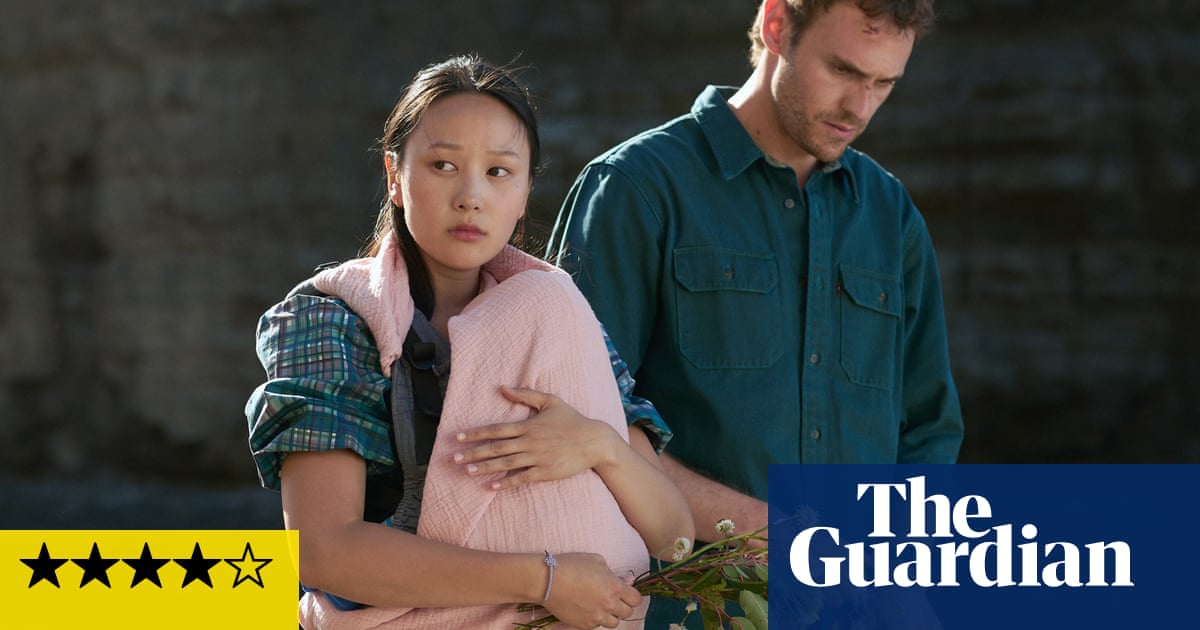Ihope you have had enough time to recover from Robyn Malcolm’s barnstorming performance as a harrowed wife and mother labouring under burdens no one should have to endure in the acclaimed After the Party, because here comes another one.
The Survivors is a six-part adaptation of Jane Harper’s bestselling Australian crime novel of the same name, by Tony Ayres – who did the same for Christos Tsiolkas’s The Slap 10 years ago, which followed families fracturing under the weight of a moment’s lost control, and who wrote Stateless in 2020 about lives intertwining at an Australian immigration detention centre. This is a writer who doesn’t shy away from the pain human beings can inflict on one other. The Survivors is technically a murder mystery but its real subject is grief and terrible, terrible guilt.
Ayres noted in a publicity interview that he wouldn’t dare start The Slap now as gently as he did then (it began with one of the characters easing into a seemingly ordinary day, by the end of which nothing would be easy again); the pressure to grab the audience immediately and hard is simply too great. Accordingly, we begin here at night with a teenage boy on the verge of drowning in the storm-lashed caves of his local bay. A boat crewed by his older brother and his friend comes riding out of the darkness, only to overturn at the last second. We cut to a funeral – the boy, Kieran (Ned Morgan) has survived but his brother Finn (Remy Kidd) and Finn’s friend and crewman Toby (Talon Hooper) were killed.
We then cut to the present day, 15 years on from the tragedy, as Kieran (played as an adult by Charlie Vickers) returns to Evelyn Bay after years of – only technically self-imposed – exile with his wife Mia (Yerin Ha) and their new baby, his parents’ first grandchild. His father Brian (Damien Garvey) is now in the early stages of dementia and mistakes him for Finn. The air is thicker than ever with ghosts. His mother Verity (Robyn Malcolm) is seen in flashback berating young Kieran in his hospital bed for the death of his brother but here in the present busies herself with caring for Brian and making pass-agg remarks about Kieran and Mia’s parenting skills. The atmosphere alone makes you want to watch from behind your fingers.
In a small town there is no escape. Everyone knows who he is, everyone has an opinion about the degree of his culpability, none more so than the owner of the local pub, which is owned by Toby’s father Julian (Martin Sacks) whose rage and sorrow has festered and been passed on to the son, Liam (Julian Weeks), Toby left behind.
It is almost a relief when a corpse turns up on the beach to distract us all. But it is the body of Bronte (Shannon Berry), a young woman from out of town who had been researching the possible death of a third person that night 15 years ago. The drownings overshadowed the disappearance of teenager Gabby Birch (Eloise Rothfield) and Bronte was working with her mother Trish (Catherine McClements), giving as heartbreaking a performance as Malcolm to reignite interest in her case.
Bronte was murdered and likely sexually assaulted. Her murder and the possible death/killing of Gabby pull the community into a fresh hell at the same time as resurrecting memories of the past. Clues are gathered, suspects are considered, tracked down, dismissed or arrested, and hopes, disappointments, red herrings and new possibilities abound as detectives try to reconstruct Bronte’s time in Evelyn Bay and discover who she might have upset and how. Meanwhile, the labyrinthine connections among the townsfolk are gradually revealed, offering up new motives and ruling out others. But we also see how the competing interests among people and the vulnerabilities left by the storm leave them open to blackmail from and by one other – how do you refuse anything to someone you bereaved? – and witness statements are retracted or massaged, evidence is concealed and the situation becomes increasingly dark for Kieran and his family especially.
The Survivors is a study in how raw grief and festering resentment warp everything – and how surviving a tragedy rarely means getting away unscathed. At its centre is the particular pain of the three mothers – Finn’s, Bronte’s and Gabby’s – deprived of their children and for ever changed by it. Their suffering is almost palpable and marks The Survivors indelibly out from the murder mystery herd.
The Survivors is on Netflix now.
